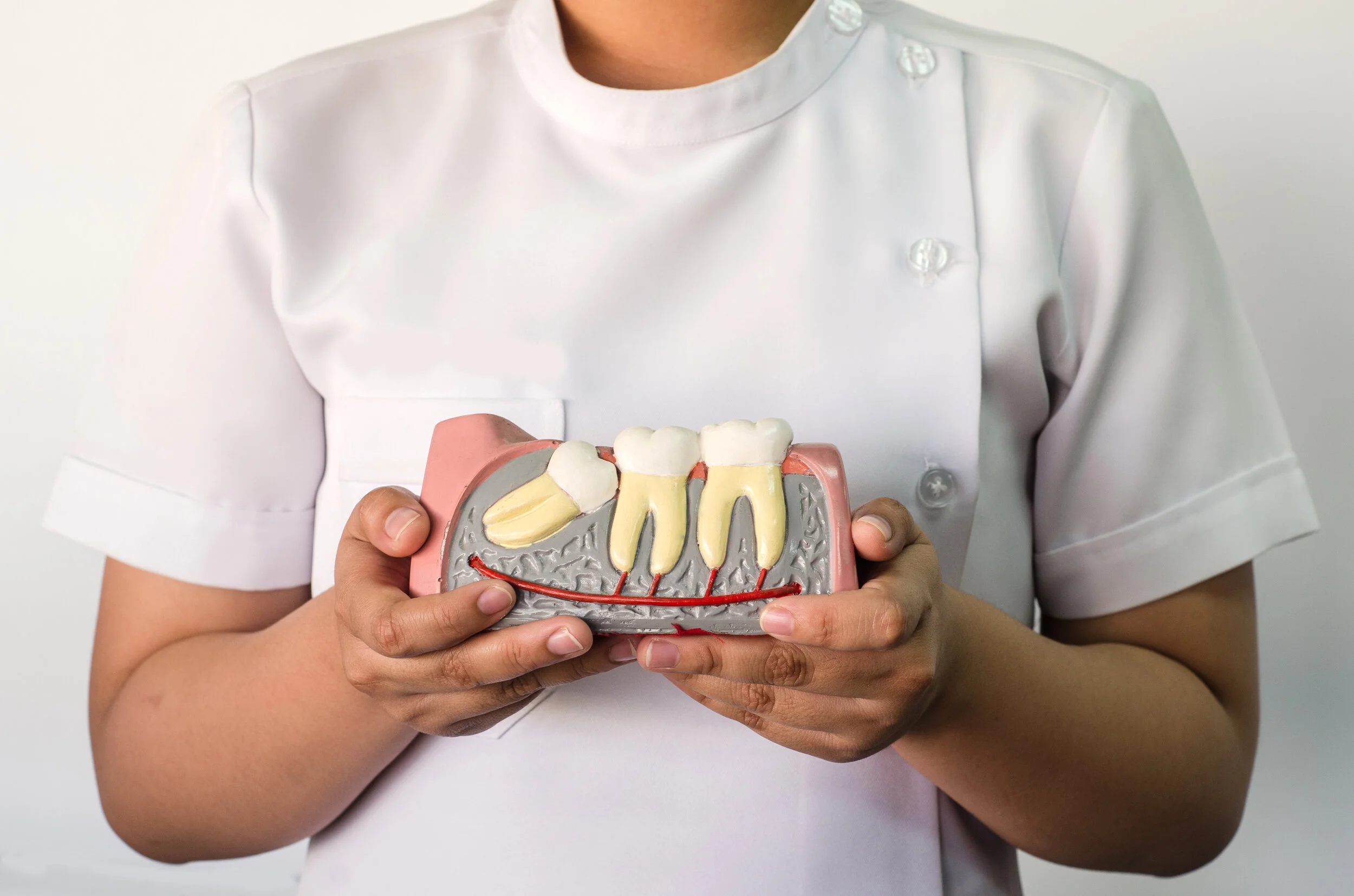Wisdom Teeth
At Kleypas Family Dentistry, Dr. Kleypas regularly performs wisdom teeth extraction for patients in the Cypress area to protect against potential complications or other oral health problems caused by crooked or impacted wisdom teeth.
┃What are wisdom teeth and when do we get them?
While your mouth and teeth go through many stages of development in childhood and adolescence, getting wisdom teeth is one major dental milestone that usually takes place between the ages of 17 and 21. Wisdom teeth are technically the emergence of your third set of molars, but historically this set of teeth has been called “wisdom teeth” because they appear at a more mature age. If your wisdom teeth have not appeared, Dr. Kleypas can take a series of x-rays to monitor their alignment and position.
┃How do I know if I need to get my wisdom teeth extracted?
Wisdom teeth may come through correctly, which provides an added benefit for chewing. And while you may experience some discomfort when wisdom teeth appear, if you have any pain then you should see your dentist as soon as possible. Regular visits to the dentist will allow for examinations and consultations related to your wisdom teeth and whether or not they need to be extracted. If you are experiencing any of the following symptoms, you may need to have some or all of your wisdom teeth extracted:
Pain
Infection
Cysts
Tumors
Damage to neighboring teeth
Gum disease
Tooth decay (if it is not possible or desirable to restore the tooth)
In addition to these painful symptoms, wisdom teeth may need to be extracted as a part of orthodontic treatment or other dental procedures. Before making any decisions regarding wisdom tooth extraction, our dentist will discuss the options and results with you in order to determine the best choice for your dental health and condition.
┃Why should I have my wisdom teeth removed?
Wisdom teeth may need to be removed for a variety of reasons, including the symptoms listed above. In addition to these reasons, our dentist considers your future dental health and the following concerns when recommending extraction:
If wisdom teeth are not in the right position, food can become trapped giving cavity-causing bacteria a place to grow.
If wisdom teeth have not come in properly, it can be difficult to floss between the wisdom teeth and the molars next to them.
Wisdom teeth that have only partially erupted can give bacteria a place to enter the gums and create a place for infection to occur, which can lead to pain, swelling and stiffness in your jaw.
Wisdom teeth may not have room to erupt and may cause crowding or damage to your other teeth.
If a wisdom tooth is impacted, a cyst can form on or near the impacted tooth, which may damage the roots of a nearby tooth or even destroy the supporting bone.
┃What happens during wisdom tooth extraction? Does it hurt to have your wisdom teeth pulled?
At Kleypas Family Dental in Cypress, TX, our dentist has extensive experience in wisdom tooth extraction and are able to perform the procedure in less than 90 minutes. Using local anesthetics and sedation dentistry, we are able to ensure a comfortable and pain-free experience during your wisdom tooth extraction. Once your anesthesia takes effect, Dr. Kleypas will carefully remove the tooth using medical-grade pliers. If the tooth or teeth are impacted, the dentist will carefully make an incision in your gum in order to extract portions of the affected tooth piece by piece. Once the extraction procedure is completed, we will thoroughly clean the area of your mouth around the extraction and apply dissolvable stitches to seal the wound.
During the recovery period, it is important that you carefully follow any and all instructions given by the dentist in order to expedite healing and prevent any infection. It is normal to experience some swelling, bruising, bleeding or discomfort, following your procedure. Our dentist will prescribe painkillers and other recommendations for your recovery in order to alleviate any pain or complications.

